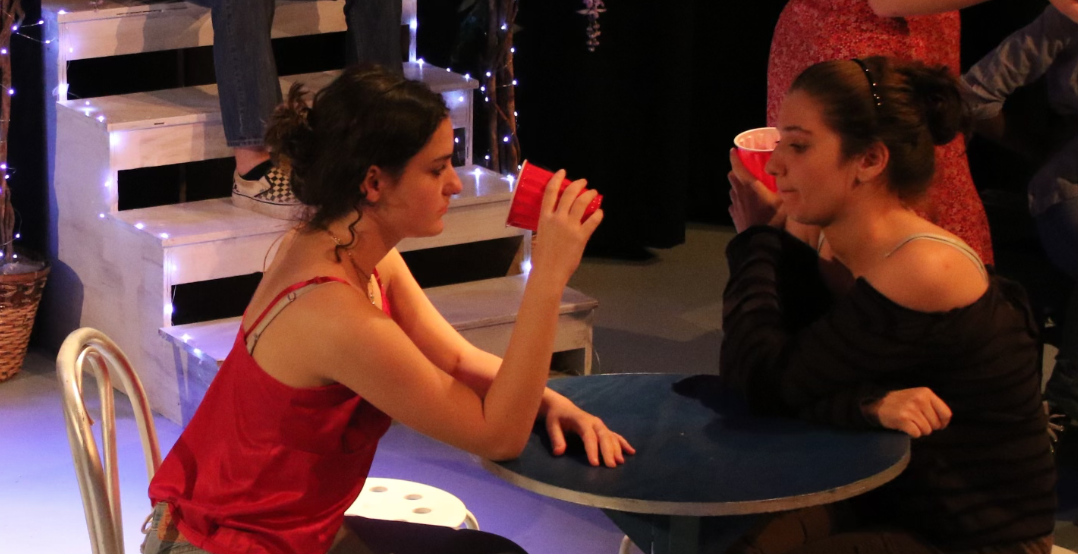Students at WIS tried to put together a student-run musical in spring 2022 alongside the school-sponsored musical.
Senior Saul Meyer-Fong is one of the students who spearheaded the effort along with other students, such as senior Olivia Connolly.
“I was also working with some of the cast from [Upper School fall play] “All In The Timing” and the general consensus was that they also wanted to do a real musical,” Meyer-Fong said.
The school-run musical this year is “Edges: A Song Cycle,” which is being run by John Munt, the Upper School Music Teacher.
It was developed by Benj Pasek and Justin Paul as undergraduates in musical theater at the University of Michigan.
It is a coming-of-age song cycle. It is about “young adults at the metaphorical edge of their lives,” according to Musical Theatre International.
Song cycles are a group of individual songs designed to be performed together. Although there is a theme, song cycles lack a continuous storyline.
“That disappointed me because I don’t do musicals for the singing part,” Meyer-Fong said. “I do it for the fun of getting up on stage and doing goofy things with my friends and acting.”
The idea of running their musical was only related to “Edges” in that they wanted to run a typical musical but were in no way trying to compete with the song cycle, according to Meyer-Fong.
“We wanted to be able to do our own thing and have a fun, happy, lighthearted musical and not have to do something we weren’t interested in doing,” Meyer-Fong added.
The idea began to form over the summer when students didn’t receive an email explaining what musical would be put on this year. Usually, the email is used to gauge interest and in past years teachers have changed the musical due to student dissatisfaction.
When Munt sent out audition sign-ups for the school musical, the students were getting ready to do something with their idea. After researching “Edges,” they still decided to try to run an additional musical.
The students narrowed it down to four feasible options, and ended up going with “The Trail to Oregon.” The show is the “most historically accurate musical portraying the Oregon Trail to date” and has five alternated endings, according to IMDb
.They intended to pick musicals with small casts and minimal set and prop requirements so that the majority of the school’s resources were still devoted to the actual musical.
The next step was to ask ISU for money.
“This would’ve definitely been one of the larger things that ISU funds,” said senior and ISU representative Nadim Mottu. “It would’ve involved, even after the initial funding, a big commitment from the other students for that money to be put into good use.”
Students requested $475 to run the show twice and get the legal rights to do so. Ultimately, ISU agreed on the condition that Munt agreed and they provided a list of people interested in doing the musical.
“They only wanted enough money to be able to buy the rights to the show,” Mottu said. “They were very open to doing the rest of it themselves.”
Mottu added that when the students were asked about logistics such as the set and choreography, they said that they were doing it for fun and would take care of it on their own.
Munt agreed and added some other conditions to it, such as checking in with the school administration and working with the grounds, facilities, and tech people.
“We weren’t even planning on really using anything in the way of tech or anything particularly special,” Meyer-Fong said. “The amount of bureaucracy stifled the energy because we were also working on mock IB [exams] and had to study.”
In the end, the student-run musical was unsuccessful.
“I was under the impression that it would go pretty smoothly,” Mottu said. “They would talk to Mr. Munt and they would come to some form of agreement, so I guess I’m a bit disappointed in the end. I think the show would’ve been fantastic if they could’ve done it.”
However, Meyer-Fong is still thankful for the opportunity to speak with ISU about the idea and hopes that there’ll be a more positive outcome if it happens again.
“I think overall the lack of infrastructure to let students do independent projects without faculty being there and doing everything really made me disappointed,” Meyer-Fong said. “Our school stresses the importance of leadership opportunities but also doesn’t provide the support necessary to create our own.”
Although he understands what restraints there might be to student-run projects, such as the risk of property damage, he believes that high school should be a time for trying new things and the lack of scaffolding for that is disappointing.
“I thought we had a winning idea,” Meyer-Fong said. “And if we had gotten the money we would be on our way to performing it right now.”
By Isabella Duchovny

































































